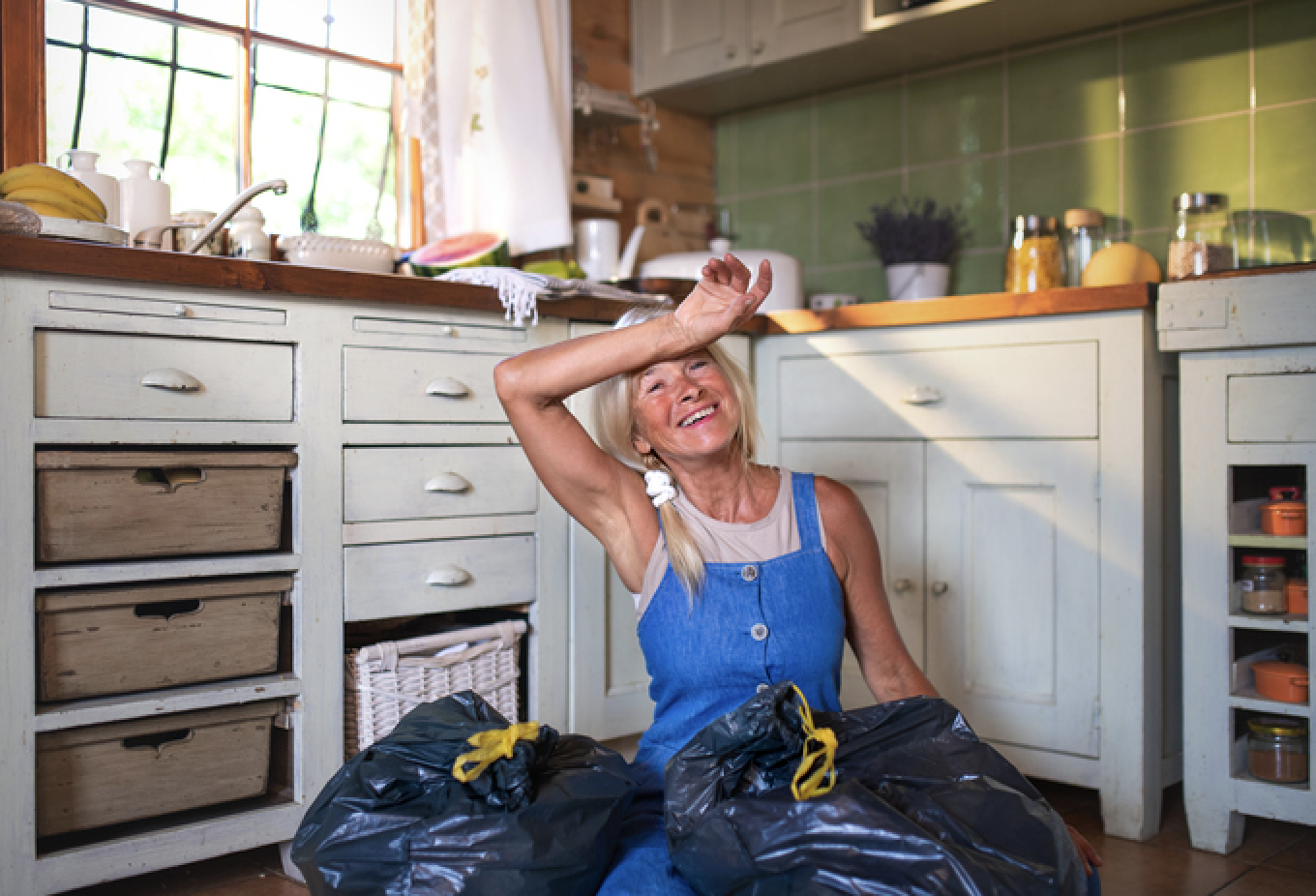Tips For Tidying: Trying To Clear The Clutter
January 3, 2024

Now that it’s 2024, many will start the year by saying, “Out with the old, in with the new.” But when it comes to the products and possessions that fill your life (and your living space), “in with the new” may be a questionable tactic and even downright dysfunctional. Too many of us purchase, collect- or refuse to dispose of- too much stuff. Consequently, we may feel overwhelmed or impoverished or even set ourselves up for tripping hazards or unhealthy environments. Why do some consume, collect, or hold onto too much? Psychology and sentimentality certainly play a part. Apartment Therapy recently categorized the four different types of “clutter personalities:” There are those who want to be “collectors.” As one woman admitted, “As soon as I had two of something I wanted more.” In fact, there seems to be a current trend connected to social media of showing off collections and attaining a sense of accomplishment or community as a result. Then some are sentimentalists, unable to part with unneeded items because of the memories attached to the item. Pragmatists are the third category, holding onto items because “you never know” when they might come in handy or be useful. Finally, there are the “Bargain Hunters” who buy multiples when the items are deeply discounted and then refuse to get rid of the items because they were “too good of a deal.” Do any of these attitudes sound familiar to you?
The available science on the accumulation of clutter seems to suggest that simplifying our lives, rather than accumulating excess, is what ultimately may make us happier. In a literature review from 2021, researchers found an association between “voluntary simplicity” (ie, limiting clutter and possessions to live more simply and deliberately with purpose) and well-being. Memories and experiences are more likely to be lasting sources of happiness and meaning than the detritus left when a loved one dies or the collection forged from TikTok encouragements. In fact, cleaning out those no longer-needed possessions after the death of a loved one may just be the ticket to pushing you into that mode of voluntary simplicity. Author Lisa Salamonis, recently writing in Next Avenue, described what she terms a “desire for a more minimalist life,” after she experienced cleaning out her childhood home once her parents passed away. She writes, “More than anything I took away a sense of enough. I curbed my shopping habit because I didn’t want my children to someday stand before my stuff and decide: Throw away, give away, or donate?”
So if you’re willing to embrace voluntary simplicity, how can you go about that? Certainly, prior agebuzz articles offer suggestions for ridding yourself of items no longer needed or desired. The Wall Street Journal recently published some smart ways to declutter your home, depending on whether you want to earn some money from your items, you’re feeling charitable or you just want to expend as little energy as possible. Green Matters just published what they call “Conquering Clutter For Good: A Room-by-Room checklist” that includes 35 ideas to declutter your home. Buzzfeed also just published its own list of 43 organizing products that may not eliminate your clutter but at least let you organize it in ways that put it out of sight. Finally, in a New Year’s post touting easy ways to get a cleaner home, The Washington Post interviewed organizational experts from across the country. What advice did they offer? Suggestions included “micro-moments” that allow you to feel a sense of clean-up progress without being overwhelmed (a common reason why clutter remains). In addition to the advice to start small, experts also recommend “the full hands rule:” That is, never leave a room without a quick scan to see whether you can take anything with you and put it in its proper place (or throw it out). While dispensing of clutter and disposing of no longer necessary items is no easy task, the weight lifted off your shoulders (and off your shelves and floors) is certainly a desirable goal. For a few extra resources that may help, check out the website The Simplicity Habit, along with the National Association of Productivity and Organizing Professionals, whose website may help you find a pro or “clutter buddy” to help ease the process of decluttering.







